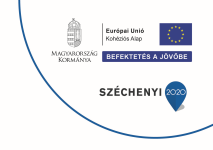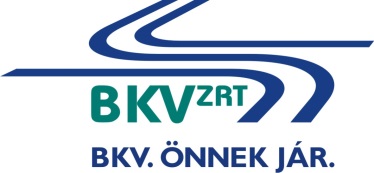Respecting the principle of equal treatment, creating the conditions for equal opportunities, integrating people with disabilities is our social duty. Ensuring barrier-free access is a fundamental requirement that is essential for people with reduced mobility and is essential for pregnant mothers, parents traveling with strollers, the elderly with reduced mobility, young children and those carrying large packages.
The idea of universal planning, based on human differences, taking into account both social and equal opportunities, became accepted in the summer of 1996 among European recommendations and decisions.
Metro line M3 began to be built in 1970, and has existed in its current form since 1990, when the creation of an accessible environment was not yet defined among the goals and requirements, so even the possibility of any later construction was not provided. To solve this, new structures and new surface connections are needed.
During the preparation of the metro reconstruction, it became clear that the installment of the lifts significantly exceeds the expected available funding. Therefore, the importance of accessibility for each station was ranked according to a multi-criteria comparison system, based on the number of passengers, alternative barrier-free access to the surface, and the location of major destinations, public institutions (eg hospitals, administrative facilities).
Pursuant to the extensive consultations that have taken place in the meantime and the agreement concluded between the Municipality of Budapest and the National Federation of Organisations of People with a Physical Disability (MEOSZ) and approved by the Budapest General Assembly on 25 April 2018, metro line M3 will be accessible as follows:
– It was barrier-free even before the renovation of the metro: elevators were built at the Újpest-városkapu station as part of another investment, which could be taken over by the traveling public after the handover of the reconstructed northern section. At the Kőbánya-Kispest terminus, the lifts were completed earlier - during the construction of the shopping center. At the Göncz Árpád városközpont station, a lift has already helped the traffic between the underpass level and the tram platform, we plan to install more lifts in the future, so that full accessibility will be achieved.
– Traditional elevators: At Újpest-központ, Gyöngyösi utca, Forgách utca metro stations, elevators were built during the reconstruction of the northern section, the stations are easily accessible. Elevators were built at Népliget and Határ út stations during the reconstruction of the southern section. At Határ út, full accessibility will take place later, the connection between the underpass and the surface is not yet barrier-free. The accessibility of the Ecseri út and Pöttyös utca stations is in progress, it is expected that they will be accessible by elevators by the end of 2021. The subsequent accessibility of the Dózsa György út metro station is expected to finish in 2022. The installation of elevators at Lehel tér, Deák Ferenc tér, Nagyvárad tér metro stations will be completed during the reconstruction of the middle section.
– Inclined elevators: Semmelweis Klinikák, Corvin-negyed, Kálvin tér, Ferenciek tere, Nyugati pályaudvar, Arany János utca stations will be equipped with special inclined lifts.
We strive to achieve the greatest possible accessibility under the given conditions, and we will therefore consult with civil society and advocacy organizations to incorporate those means, that provide real assistance to passengers with reduced mobility.
Equal opportunities are an important value for all of us!







